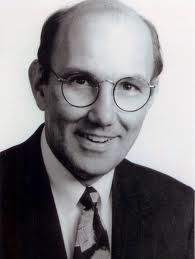“That’s the issue [recovery]: it is not about any of us. It is to keep our eye on the prize, which is what drove most of us into this field in the first place. And that prize is the person who’s in recovery and seeing them grow.”
 Here is a touching obituary of a special person in the recovery field, David Powell PhD. Bill White talks about David’s contribution and highlights his passion, drive and dedication. He also touches upon the pressing issue of finding new passionate leaders in the recovery field.
Here is a touching obituary of a special person in the recovery field, David Powell PhD. Bill White talks about David’s contribution and highlights his passion, drive and dedication. He also touches upon the pressing issue of finding new passionate leaders in the recovery field.
‘David Powell, PhD, who recently assumed the position of Assistant Clinical Professor within the Department of Psychiatry at Yale University School of Medicine, is not a person who needs introduction to an audience of addiction professionals and recovery advocates, but some readers may not yet know that David died in a fall at his home on November 1, 2013.
David was ever-present within the addictions field for more than four decades. His work addressed many frontier issues within the field, but he is probably best known for his pioneering work to enhance the quality of clinical supervision in addiction treatment. He pushed this agenda through his numerous publications, frenetic presentation schedule and through consultations with leading addiction treatment organizations.
Over the course of his career, David trained addiction professionals in all 50 states and in more than 70 countries. He was also instrumental in introducing recovery mutual aid groups to countries in which no such resources existed and in helping numerous countries develop addiction treatment and addiction counselor training programs.
David had numerous passions in his work with all of us. Beyond his work in clinical supervision, he was deeply involved in workforce development issues within the field, the integration of spirituality within addiction treatment and sorting the ambiguities within some of the field’s most complex ethical issues.
He was particularly passionate about the need for the field to develop future leaders.
As he said in a recent interview, “Old-timers like me need to take folks under our wings and mentor them over the next five years. The key step is being able to be replaceable, to train somebody to do what you can do.
Another concern is that we are losing our history. The people that got us to where we are, the shoulders on which we now stand, we not only don’t know who they are, but we don’t seem to care. That is unfortunate. A generation of leaders is ready to turn over the mantle of leadership. The question is who’s going to accept that mantel.”
For years, David and I communicated on issues of import to the field we both loved, but the pace of those communications had quickened in recent months. We both were acutely aware that we were in the twilight of our careers and spoke often about how the work we had begun could be best carried forward.
That preoccupation with legacy and the future of the field led both of us to capture more of our work in writing and to invest more time in mentoring younger leaders within the field. David and I had, in fact, just finished two small but, in retrospect, very important projects.
The first was an interview with David – a career retrospective – and the second was assembling and editing several papers David had written on his international work. (see Interview and David Powell Papers).
Two days before he died, David and I exchanged a series of emails reflecting on the growth of luxurious addiction treatment for the “1%ers” (the very rich and famous) and what this meant for those being treated in such environments and what it meant for our field.
We both knew at this point in our lives that time was a most precious and ephemeral gift, but we continued to share numerous plans of the work we still hoped to complete. And most calls ended with us reflecting on the good fortune bestowed upon us via the love of our respective wives and children and what full lives we had been blessed to live.
As I think about David’s influence on the field and on me, it was his unwavering ability to bring every issue back to a focus on the person/family seeking or in recovery. As he said in his interview, “That’s the issue [recovery]: it is not about any of us. It is to keep our eye on the prize, which is what drove most of us into this field in the first place. And that prize is the person who’s in recovery and seeing them grow.”
David Powell offered us his brilliance and unquenchable energy, but also his humility and his friendship. The field will miss his presence dearly, as will I. His passing provides an opportunity for personal and collective recommitment to the recovery vision that drove David’s decades of service and innumerable contributions.’


